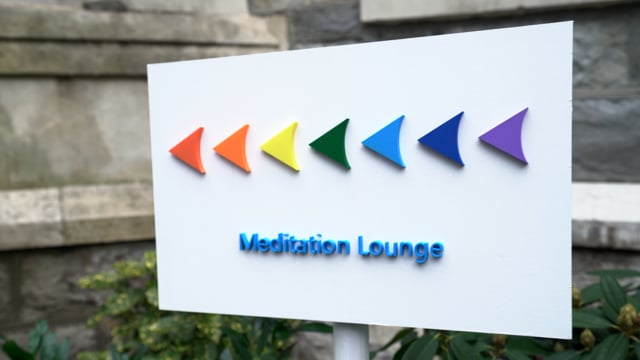All Here Meditation Institute
Quantified Meditation & Silent Mind Index
Through collaboration with high level practitioners and leading neuroscientists, All Here is pursuing scientific research and quantification of the Silent Mind using methods of Quantified Meditation and advanced brain imaging technology.
Measuring and analyzing brain activity with scientific methods of Dynamic Electrical Neuro-imaging, time frequency and power spectral analysis, to understand the reduction of mind wandering, tracking focal attention, accessing self-cognition networks in the brain, self beyond bodily consciousness, other brain and physiology related analysis.
Each session produces a Quantified Meditation Report, visualizing brain activity recorded during meditation and analysed by the Neuroscience team, contributing to objective assessment of practice and development of the Silent Mind. At the heart of All Here is the pioneering of Quantified Meditation and Silent Mind Index, which bring together science, technology, and advanced meditation practice.
All Here Meditation Institute in Geneva collaborates with world-leading research institutions including:
All Here’s Quantified Meditation System™ (QMS)
All Here is advancing Quantified Meditation and Silent Mind Index, a data-driven approach to:
The Science of Quantified Meditation
Integrating high-density EEG, advanced brain imaging and dynamic electrical neuroimaging technologies, the Quantified Meditation System™ (QMS) provides a real-time window into the meditative mind through the following indexes :
Concentration & Mindfulness Index (CMI)
Reflects attention and self-awareness in the present moment.
• The index rises as the mind disengages from thoughts of the past or future and rests fully on the meditation task.
• It provides a clear measure of stability and attentiveness versus distraction and restlessness.
Alpha Power & Brainwave Activity
Alpha Power makes visible the style of meditation in real time.
• When Alpha Power rises ‣ it signals an open-monitoring meditation style: passively observing sensations, thoughts, and objects without reacting.
• When Alpha Power falls below baseline ‣ it reflects single-pointed attention: alpha suppression, a well-known marker of focal attention.
At times, the lower panel also displays raw EEG signals along with activation of the brain’s attention networks, providing additional view of neural dynamics.
QM3 – The Peak of Meditation
QM3 represents the summit of meditation and the ability to remain there beyond a single moment. While a single moment may reveal a height, three continuous minutes demonstrate true stability and depth.
Progress in meditation is not measured by the number of hours we accumulate in practice, but by the ability to reach deep, stable and unwavering states of the mind.
QM3 captures Depth, prioritizes Quality over quantity, and highlights genuine achievement as opposed to prolonged inefficiency. Reaching peak meditative states accelerates the practice, profoundly elevates consciousness, inspires others to rise to their own highest potential.
Silent Mind Index (SMI)
The Silent Mind Index (SMI) represents the ascent towards the Silence of Mind—a state of deep meditation characterized by sustained inner silence and clarity. Building on the Concentration & Mindfulness Index (CMI), the SMI incorporates additional, significant brainwave changes that signal entry to this profound state.
See how All Here’s Quantified Meditation System™ powered the Tokyo Quantified Meditation Challenge 2025
The All Here Meditation Institute pursues the enhancement of the practice of meditation through evidence based scientific research.
Amongst our research, we study the various meditation traditions and classify them into distinct types of practices, conducting research into these practices in order to understand the neuroscientific and physiological impacts.
We are investigating advanced meditation practitioners from different traditions:
Our goal is to offer a comprehensive suite of services tailored specifically to the needs of experienced meditation practitioners, allowing them to gain deeper insights into their meditative technique, monitor their progress, and optimise their overall experience.
There is a lack of facilities dedicated to providing assessments for advanced meditators. All Here meditation labs will fill this gap.
At All Here meditation labs, ancient traditions meet scientific research. We offer assessment services to help meditators check, understand, and monitor their progress. Our goal is to promote a deeper, evidence-based understanding of meditation.
Our services include:
We are committed to advancing the scientific understanding of meditation through research and collaborations with leading scientists.
Our locations worldwide include:
Join All Here meditation labs to refine your practice and be part of the future of meditation

Researching expert meditators presents several challenges due to the unique nature of their practice and the complexities involved in studying their experiences. Here are some of the key challenges:
Addressing these challenges requires interdisciplinary collaboration, innovative research methodologies, and a deep respect for the traditions and practices of expert meditators. As research progresses, overcoming these hurdles will contribute to a more comprehensive understanding of the potential benefits and mechanisms of meditation.